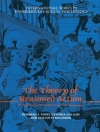In Psychopathology, Fourth Edition, best-selling author William J. Ray brings together current perspectives concerning the manner in which the human mind, behavior, and experience can be understood. In addition to the traditional psychological literature, this book draws from work in the cognitive and affective neurosciences, epidemiology, ethology, and genetics. Ray focuses on unifying and integrating the biopsychosocial understandings of human behavior within a broader consideration of human culture and language as it applies to psychopathology.
Spis treści
Chapter 1: An Overview of Psychopathology and Changing Conceptualizations of Mental Illness
Understanding Psychopathology: Definitions and Key Considerations
The Three Major Themes of This Book
The Relation of Evolution and Culture to Psychopathology
Historical Considerations in Understanding Psychopathology
Discovering the Function of the Brain in Behavior and Psychopathology
Historical Approaches to Care for Those With Mental Disorders
Biological Approaches to Treating Mental Illness
Psychological Treatment Perspectives in the 20th and 21st Centuries
Chapter 2: Neuroscience Approaches to Understanding Psychopathology
The Growing Importance of Neuroscience, Genetics, and an Evolutionary Perspective
Brain Anatomy, Neurons, and Neurotransmitters
How Do We Observe the Brain at Work?
Networks of the Brain
Genetics and Psychopathology
Evolution and Psychopathology
Chapter 3: Research Methods
What Is Science?
Nonexperimental Methods of Psychological Research
The Experimental Method: Making It Happen
Designing an Experimental Study
Other Types of Experimental Designs and Research Considerations
Ethics and the Scientific Experiment
Chapter 4: Assessment and Classification of Psychological Disorders
Initial Assessment and the Mental Status Exam
Structured Interviews and Assessment Considerations
Models of Assessment
Diagnostic Considerations in Psychopathology
Classification Systems for Mental Disorders
Chapter 5: Childhood and Adolescent-Onset Disorders
Important Aspects of Normal Childhood Development
Attachment Disorders, Conduct Disorder, and Oppositional Defiant Disorder
Autism Spectrum Disorder
Attention Deficit/Hyperactivity Disorder and Learning Disorders
Intellectual Developmental Disorder
Chapter 6: Mood Disorders
Introducing Mood Disorders
Major Depressive Disorder
Bipolar Disorder
Suicide
Chapter 7: Stress, Trauma, and PTSD
Psychological Stress and Psychopathology
The Physiological Mechanisms Related to Stress and Trauma
The Study of Stress
Adjustment Disorders, Acute Stress Disorder, and Prolonged Grief Disorder
Post-Traumatic Stress Disorder
Chapter 8: Anxiety Disorders and Obsessive-Compulsive Disorders
Overview of Anxiety Disorders
Major Types of Anxiety Disorders
Phobias and Panic Disorder
Obsessive-Compulsive Disorder
Chapter 9: Dissociative Disorders and Somatic Symptom Disorders
What Is Dissociation?
Dissociative Disorders
Somatic Symptom and Related Disorders
Chapter 10: Eating Disorders
Feeding Disorders
Obesity
Overview of Eating Disorders
Anorexia Nervosa
Bulimia Nervosa and Binge Eating Disorder
Chapter 11: Sexual Disorders, Paraphilic Disorders, and Gender Dysphoria
Sexuality in Context
Sexual Desire, Arousal, and Response
Sexual Dysfunction Disorders
Paraphilic Disorders
Gender Dysphoria
Chapter 12: Substance-Related and Addictive Disorders
Drug Use in the United States
Disordered Substance Use, Dependence, and Addiction
Alcohol
Cannabis, Hallucinogens, and Opioids
Stimulants: Cocaine, Amphetamines, Caffeine, and Nicotine
Gambling
Treatment of Substance-Related Disorders
Chapter 13: Schizophrenia
Schizophrenia Basics: Prevalence, Course, and Symptoms
Historical and Evolutionary Perspectives on Schizophrenia
Factors in the Development of Schizophrenia
Causes and Effects: Neuroscience Findings About Schizophrenia
Treating Individuals With Schizophrenia
Chapter 14: Personality Disorders
Personality Disorders and Personality
Odd, Eccentric Personality Disorders
Dramatic Emotional Personality Disorders
Anxious Fearful Personality Disorders
Treatment of Personality Disorders
Chapter 15: Neurocognitive Disorders
Normal Cognitive Changes Related to Aging
Categories of Neurocognitive Disorders
Neurocognitive Disorder Due to Alzheimer’s Disease
Other Causes of Neurocognitive Disorder
Prevention, Treatment, and Support
Chapter 16: The Law and Mental Health
The American Legal System and the Insanity Defense
Legal Competence: Standing Trial and Making Decisions
Ethical and Legal Issues in Mental Health Treatment
Sexual Predator Laws
Neuroscience and Evolutionary Perspectives on the Legal Aspects of Psychopathology
O autorze
William J. Ray is an Emeritus Professor of Psychology at Pennsylvania State University. He received his Ph D from Vanderbilt University and was a Fellow in Medical Psychology at the University of California Medical Center in San Francisco. He received his undergraduate degree from Eckerd College, where he learned about the value of primary sources and the need to integrate information from a number of perspectives. As part of his clinical training, he has worked in a number of mental hospitals and clinics across the country, where he developed an appreciation of the experiences of those with mental disorders. In his career, he has served as a visiting professor and researcher at the University of Hawaii, Münster University, University of Rome, Tübingen University, and Konstanz University. At Penn State, he was the Director of the SCAN (Specialization in Cognitive and Affective Neuroscience) program and was previously the Director of the Clinical Psychology Program. His research has focused on approaching clinical questions from a neuroscience perspective. He has used psychophysiological and brain imaging techniques such as EEG, MEG, DTI, and f MRI to study emotionality, psychopathology, and individual differences. These studies can be found in his numerous articles, book chapters, and books. His work has been published in such journals as Science, Proceedings of the National Academy of Sciences, Journal of Neuroscience, Psychophysiology, Physiological Reviews, Journal of Personality and Social Psychology, Developmental Psychology, Journal of Abnormal Psychology, Cognitive Brain Research, Biological Psychology, Neuro Image, and Clinical Neurophysiology. This work has been funded by both national and international agencies including NIH, NIMH, NASA, NATO, and the DAAD. In addition to research, teaching has been an important part of his career. His textbooks include Abnormal Psychology, Methods Toward a Psychology of Behavior and Experience, Psychophysiological Methods (with Robert Stern & Karen Quigley), and Evolutionary Psychology: Neuroscience Perspectives Concerning Human Behavior and Experience.












